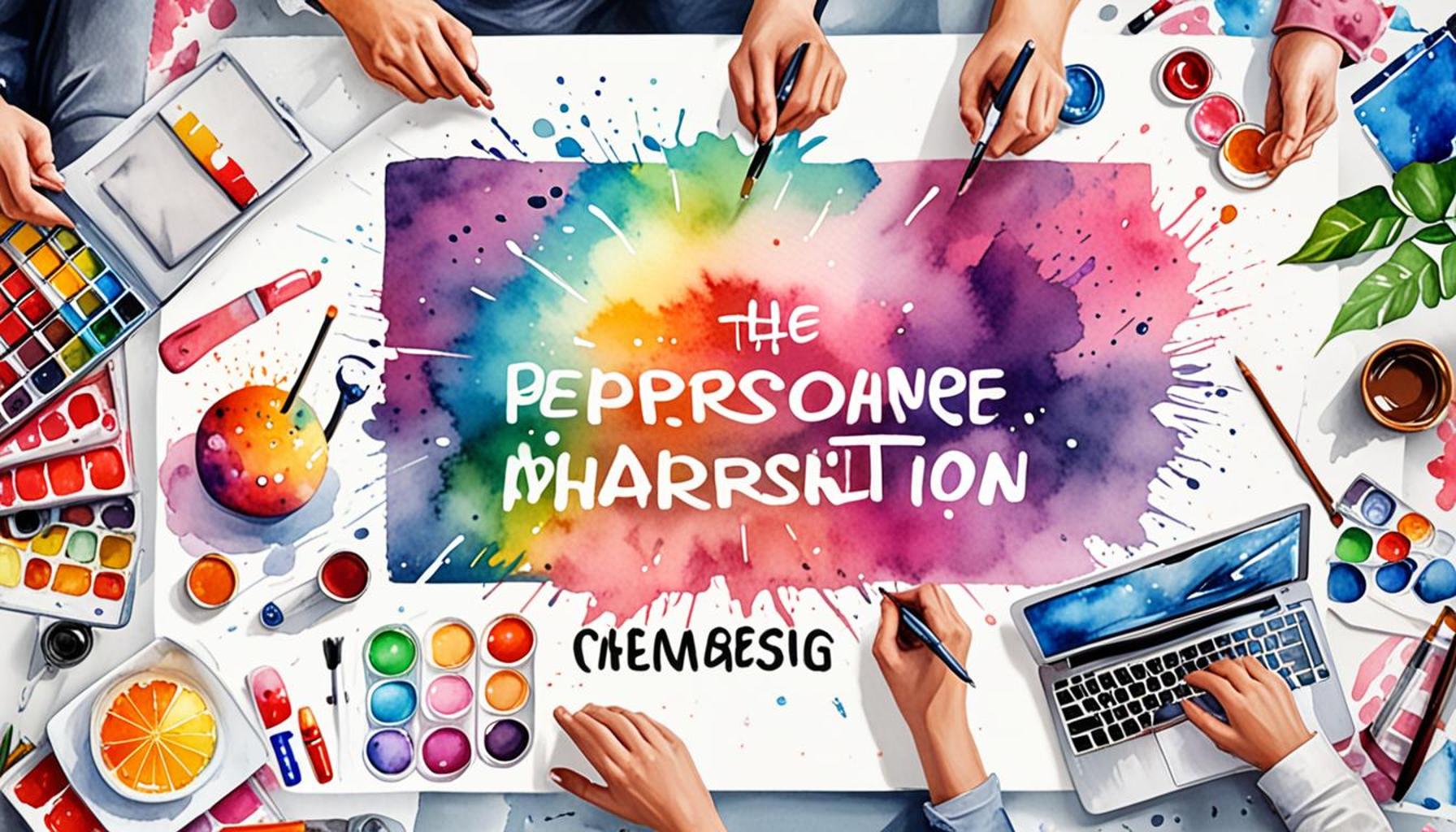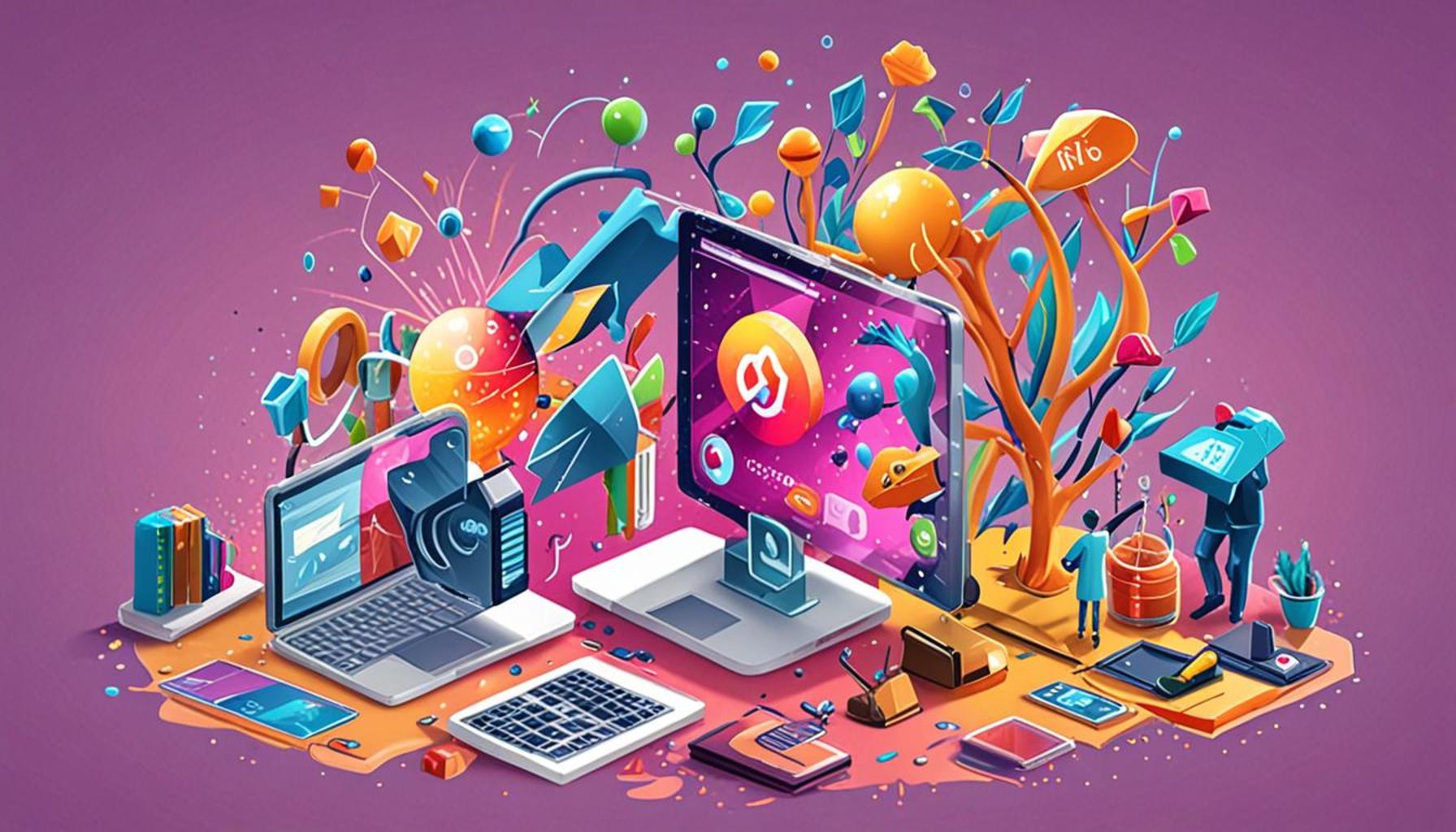The Importance of Personalization in Online Digital Marketing Strategies

Exploring the Significance of Personalization in Digital Marketing
In the realm of modern advertising and e-commerce, personalization isn’t merely a buzzword; it’s a transformative strategy that redefines how businesses engage with their customers. As consumers become more adept at navigating the digital space, they increasingly expect brands to offer content and experiences that are relevant to their unique preferences and behaviors. Personalization has become essential in this context, leading to improved customer satisfaction and increased conversion rates.
- Relevance: Tailored content significantly enhances the chances of engaging consumers. For instance, streaming services like Netflix utilize personalized recommendations, which not only increase viewer satisfaction but also lead audiences to discover new titles they might not have selected otherwise.
- Engagement: When messages resonate with users, engagement levels soar. Retail brands such as Amazon use algorithms to suggest items based on previous searches and purchases, fostering a shopping experience that feels intuitive and tailored to individual needs.
- Loyalty: A personal touch can foster a deep sense of loyalty among consumers. Loyalty programs that offer rewards based on past shopping habits encourage repeat business by making customers feel recognized and valued.
Today’s technology enables marketers to harness data and create bespoke user experiences that resonate at a deeper level. For example, an email marketing campaign can include personalized greetings and product suggestions derived from a customer’s buying history. Research has shown that such targeted emails can yield conversion rates surpassing 10%, underscoring the effectiveness of personalization in driving engagement and sales.
As online competition increases daily, having a solid grasp of effective personalization strategies is not just beneficial; it’s imperative for brands that wish to thrive. Companies that prioritize and implement personalization effectively can distinguish themselves amidst the noise of the crowded digital marketplace. This leads not only to enhanced customer satisfaction but also to a significant return on investment.
This article will delve deeper into the many advantages of employing personalization tactics, examining successful case studies that highlight best practices. Furthermore, it will provide valuable insights on leveraging data analytics to craft seamless, personalized digital experiences that can ultimately propel brand success and foster enduring customer relationships.
ADDITIONAL INSIGHTS: Expand your understanding here
The Power of Personalization: A Game Changer for Brands
As the digital marketplace continues to evolve, understanding the significance of personalization in online marketing strategies is vital for businesses aiming to make a lasting impression. In an era of information overload, consumers are often bombarded with generic advertising messages. Consequently, a one-size-fits-all approach fails to resonate with audiences, leading to diminished engagement and lost sales opportunities. Instead, brands that embrace personalization can unlock a multitude of advantages, transforming casual browsers into loyal customers.
Personalization encompasses a variety of tactics, from tailored website experiences to individualized marketing communications. By leveraging data analytics, companies can develop detailed consumer profiles that include preferences, purchasing behavior, and even browsing patterns. This wealth of information allows for the creation of targeted campaigns that speak directly to the needs and desires of specific audience segments.
- Improved User Experience: Personalized experiences can drastically enhance the user journey. For example, e-commerce platforms utilize algorithms that display products related to a user’s past searches or purchases, creating a seamless shopping experience. According to a study by McKinsey, personalized experiences can improve customer satisfaction by up to 40%.
- Higher Conversion Rates: Personalized marketing emails boast significantly higher open and click-through rates than their generic counterparts. Research from Experian indicates that targeted emails generate six times higher transaction rates, driving increased ROI. Brands that customize their offerings based on consumer insights are more likely to convert casual visitors into committed buyers.
- Enhanced Customer Retention: Studies show that 70% of millennials are influenced by personalized experiences when making a purchasing decision. By offering tailored recommendations and engaging consumers on a personal level, brands foster emotional connections that encourage long-term loyalty. Programs like Sephora’s Beauty Insider reward system effectively leverage customer data to provide individualized rewards and recommendations.
Moreover, with tools such as artificial intelligence (AI) and machine learning, marketers can continuously refine their personalization strategies. AI can analyze vast amounts of data to predict consumer behavior, enabling businesses to adjust their tactics in real time. This fluid approach allows brands to remain relevant, dynamic, and connected to their audiences.
In the context of a competitive landscape, the benefits of personalization extend beyond just increasing sales. Brands that prioritize a customized approach also see reduced customer acquisition costs. By focusing on existing customer relationships and identifying patterns that encourage repeat business, companies can execute effective strategies that lead to sustained growth.
As digital marketing continues to advance, the role of personalization will only become more crucial. Companies must recognize the importance of crafting individualized experiences that resonate with their target demographics. Embracing personalization not only positions brands as leaders in their respective industries but also fosters an environment where customers feel valued and understood.
| Category | Description |
|---|---|
| Customer Engagement | Personalization enhances user engagement by delivering tailored content and experiences based on individual preferences and behavior. |
| Higher Conversion Rates | Users respond better to personalized offers and messaging, resulting in increased conversion rates and higher ROI on advertising spend. |
Personalization is a game-changer in the landscape of online digital marketing strategies. By utilizing consumer data to create targeted campaigns, businesses can engage with customers in a way that feels relevant and meaningful. For instance, email marketing campaigns that use personalization techniques can see open rates increase by up to 26%. This significant spike reflects how powerful individualized messaging can be when it resonates on a personal level. Moreover, leveraging personalization can also enhance customer loyalty. When customers feel recognized and valued, they are more likely to return for future purchases. Brands such as Amazon and Netflix illustrate this effectively; their personalized recommendations keep users coming back and increase their overall satisfaction. Additionally, personalization can lead to better customer insights. By analyzing data from personalized campaigns, businesses can gain a deeper understanding of their audience’s preferences and behaviors, allowing for future strategies to be more effective. In the dynamic world of digital marketing, embracing personalization is no longer an option but a necessity for brands looking to stay ahead.
LEARN MORE: This related article may interest you
Driving Engagement Through Personalization
In the rapidly evolving landscape of online marketing, the element of personalization has emerged as a pivotal strategy for driving customer engagement. One of the key aspects of personalization is the ability to foster a two-way conversation between brands and consumers. Instead of merely broadcasting promotional messages, businesses are increasingly leveraging technologies that encourage consumer interaction. This interactive approach not only boosts engagement rates but also enhances brand loyalty.
One notable example of successful two-way personalization is seen in the realm of social media marketing. Brands utilize platforms like Instagram and Facebook to encourage user-generated content, where customers share their experiences with products. Through this engagement, companies can collect invaluable insights about customer preferences and aspirations. A survey from Sprout Social underscores this trend, revealing that 70% of consumers feel more connected to brands that actively engage with them on social media. This sense of connection translates directly into brand loyalty.
- Data-Driven Insights: The importance of data in personalization cannot be overstated. Marketers are increasingly utilizing advanced analytics tools to glean insights from consumer behavior, allowing them to create highly tailored strategies. For instance, businesses can employ customer relationship management (CRM) systems to aggregate customer data from various channels, providing a holistic view of the consumer journey. This comprehensive data approach allows companies to construct personalized campaigns that are even more impactful.
- Dynamic Content Delivery: Personalization is not just limited to email marketing; it extends to website experiences as well. By incorporating dynamic content delivery, brands can show different messages based on user behavior. For example, a visitor returning to an e-commerce site might be welcomed with a personalized message highlighting their previous purchases or suggesting similar products. Such measures increase the likelihood of conversion, as customers are met with relevant information tailored to their unique interactions.
- Targeted Advertising: Personalization also plays a crucial role in targeted advertising efforts. Rather than deploying broad advertising campaigns, brands can use tools such as Facebook Ads or Google Ads to create initiatives tailored to specific audience segments. By using data such as location, browsing history, and demographics, businesses can effectively reach potential customers with messages that resonate. Research by eMarketer indicates that personalized ads can lead to a 20% increase in sales compared to traditional advertising.
Moreover, the emergence of chatbots and AI-driven customer service tools has transformed the personal touch brands can deliver. These technologies provide personalized assistance by responding to customer queries and recommending products based on individual preferences. By providing timely and relevant responses, brands not only improve customer satisfaction but also create a sense of being understood, which is essential for building lasting relationships.
As competition intensifies across digital platforms, brands that successfully implement unique and personalized experiences are positioned to stand out. The potential for increased engagement and enhanced customer experiences is immense, and as consumers demand more personalized interactions, businesses must adapt their strategies accordingly. The question remains: how will brands continue to evolve their personalization efforts in response to consumer expectations and technological advancements?
YOU MAY ALSO LIKE: Read read another article
Conclusion: The Future of Personalization in Digital Marketing
In the competitive arena of online digital marketing, personalization has become more than just a trend; it is a vital strategy that shapes consumer experiences and drives business success. As explored in this article, personalization elevates engagement by transforming one-way communication into dynamic dialogues, fostering loyalty and satisfaction among customers. From leveraging data-driven insights to employing advanced technologies like chatbots, businesses are crafting tailored interactions that resonate with individual preferences.
The implications of personalized marketing extend far beyond mere customer engagement. They encompass enhanced conversion rates and increased sales potentials, with studies indicating that personalized strategies can lead to a significant uptick in revenue—up to 20% as evidenced by eMarketer’s findings. Additionally, the impact of dynamic content delivery and targeted advertising cannot be overlooked, as they enable brands to communicate relevant offerings that align with user behaviors and demographics.
As we look to the future, it’s clear that the demand for personalized experiences will only grow. Brands that prioritize this approach are not merely reacting to market trends but are proactively shaping their narratives in alignment with consumer expectations. The challenge lies in continuously evolving these strategies to harness new technologies and insights while building authentic connections. In an age where personalization has become the expectation rather than the exception, businesses that adapt will thrive, and those that hesitate may find themselves left behind.
Ultimately, the journey of personalization in digital marketing is an ongoing one, rife with potential for innovation and growth. Brands must remain committed to understanding their audiences, utilizing data, and delivering experiences that truly resonate. The question for marketers moving forward is not if they should personalize, but how innovatively and effectively they can do so.


